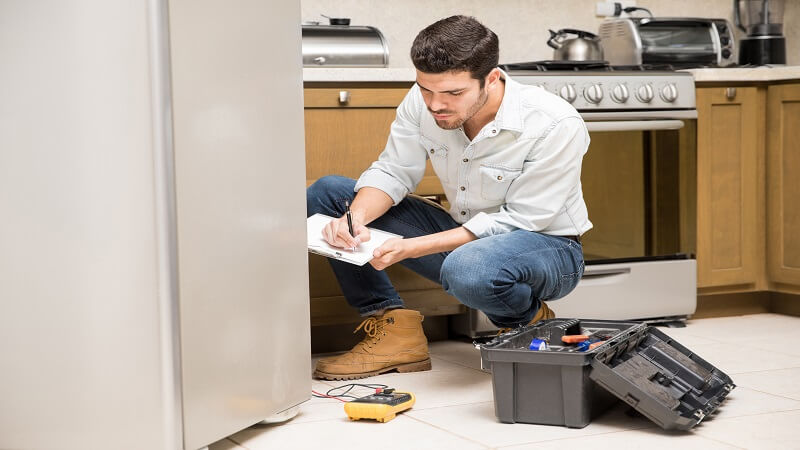Maintaining Appliances: Why It Matters
Consumer electronics and home appliances are essential for daily life, but they often go unmaintained. Regular maintenance, including cleaning, filter replacements, and minor faults, can prolong machine lifespan, reduce energy consumption, and save on emergency repairs, according to industry experts. A proactive approach can start with identifying the right components for preventive fixes—accessing trustworthy sources, such as Samsung Parts, is a reliable way to ensure every part matches your appliance’s specific requirements and maintains original performance standards.
Regularly maintained appliances perform more efficiently and are less likely to cause catastrophic failures. Preventative servicing and quality spare parts can reduce the risk of costly breakdowns by over 20%. Replacing parts like gaskets or pumps can prevent flooding and protect floors. Relying on authorized sources for parts extends appliance lifespan beyond the industry average.
Top Signs an Appliance Needs Repair or Replacement
Appliances often show signs of trouble before they break down completely. Early warning signs include persistent noises, burning odors, and inconsistent heating or cooling, usually linked to thermostat and sensor failures. Physical wear, such as frayed wires or cracked seals, should not be ignored. If you repeatedly encounter circuit breaker trips, it’s a serious electrical issue. Deciding whether to repair or replace an appliance should be based on age and typical lifespan data.
Simple Troubleshooting Tips Before You Call for Help
Before seeking professional repairs, ensure your appliance is plugged into a working outlet, circuit breakers or fuses are not tripped, and a dirty filter or clogged vent may be the cause. Removing lint from vents or cleaning refrigerator coils can restore efficiency. Resetting the appliance via built-in buttons or unplugging for a few minutes can sometimes resolve electronic glitches. Keep appliance manuals accessible for detailed troubleshooting sections. Small repairs can be done with basic tools and patience. If these steps fail, sourcing the correct replacement part from reputable suppliers can help restore everyday appliances to working order.
Choosing the Right Replacement Parts for Your Home Appliances
Due to the variety of brands available, finding the correct replacement part for your appliance can be overwhelming. Avoid using generic or off-brand parts, which can lead to frustration, poor fit, or damage. Instead, use original equipment manufacturer (OEM) parts engineered specifically for your appliance and guarantee compatibility. Check model and serial numbers, read product reviews, and check certifications for quality assurance. A reliable return policy is also essential.
How Quality Parts Impact Appliance Longevity
Investing in authentic, high-quality parts isn’t just about keeping your machine running—it’s about maximizing its lifespan and maintaining optimal performance. Time and again, research confirms that appliances repaired with OEM parts outlast those patched up with generic versions. Further, parts engineered for a particular model operate more efficiently and are less likely to create compatibility issues or introduce new risks. Households committed to regular, quality repairs find their appliances deliver years of reliable service with fewer interruptions, leading to significant savings both on utility bills and replacement costs.
Comprehensive studies reinforce that wise, well-informed decisions about repair and replacement pay ongoing dividends. Properly maintained appliances save money and contribute to sustainability efforts by reducing landfill waste—every successful repair means one less bulky machine discarded prematurely.
Expert Repairs vs. DIY: What’s the Best Choice?
DIY repairs offer cost savings, skill learning, and accomplishment in tackling simple tasks like appliance repairs. However, professionals should handle complex issues like electrical faults and gas-related matters. Inexperience can lead to costly property damage or personal injury. Certified technicians have years of training, diagnostic tools, and expertise to fix these problems. Professional service also preserves warranty coverage. A thorough assessment of skills and risks can help decide between DIY and expert assistance.
Balancing Cost and Environmental Impact When Replacing Appliances
Practical and environmental factors influence the decision to repair or replace a household appliance. Cost is often a factor, but modern appliances are generally more energy-efficient, offering lower energy bills and fewer environmental impacts. Replacing a simple part can lead to financial savings and reduced resource waste. Repairing helps limit landfill waste and supports a sustainable home. In cases where upgrading is necessary, consider donating old appliances. Making small choices, such as choosing repairs and energy-efficient replacements, can have a lasting positive impact on wallets and the environment.

